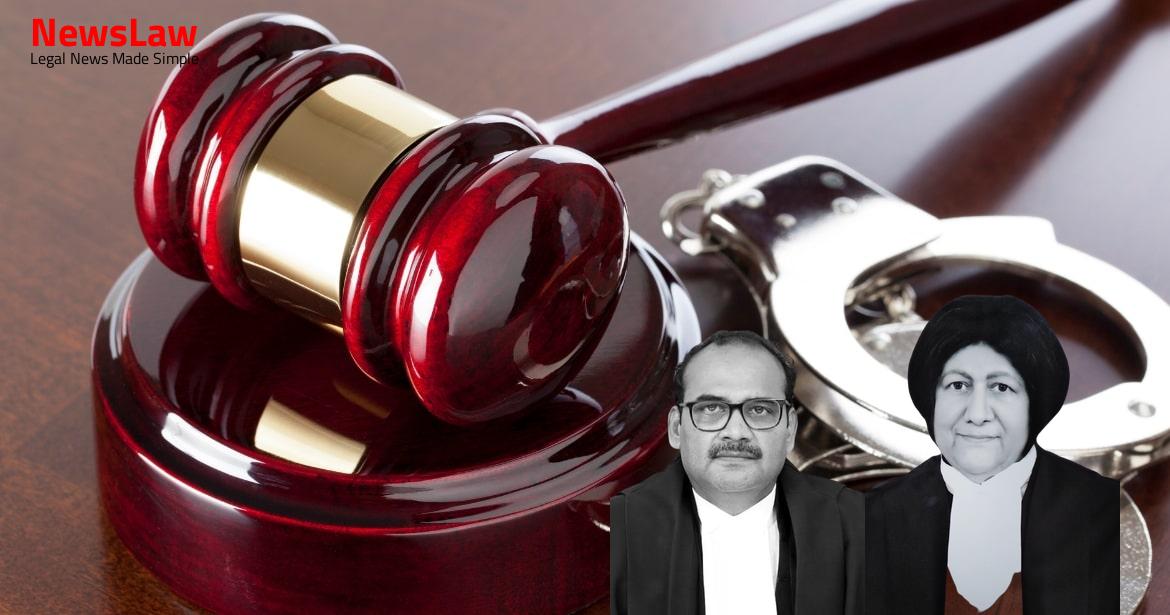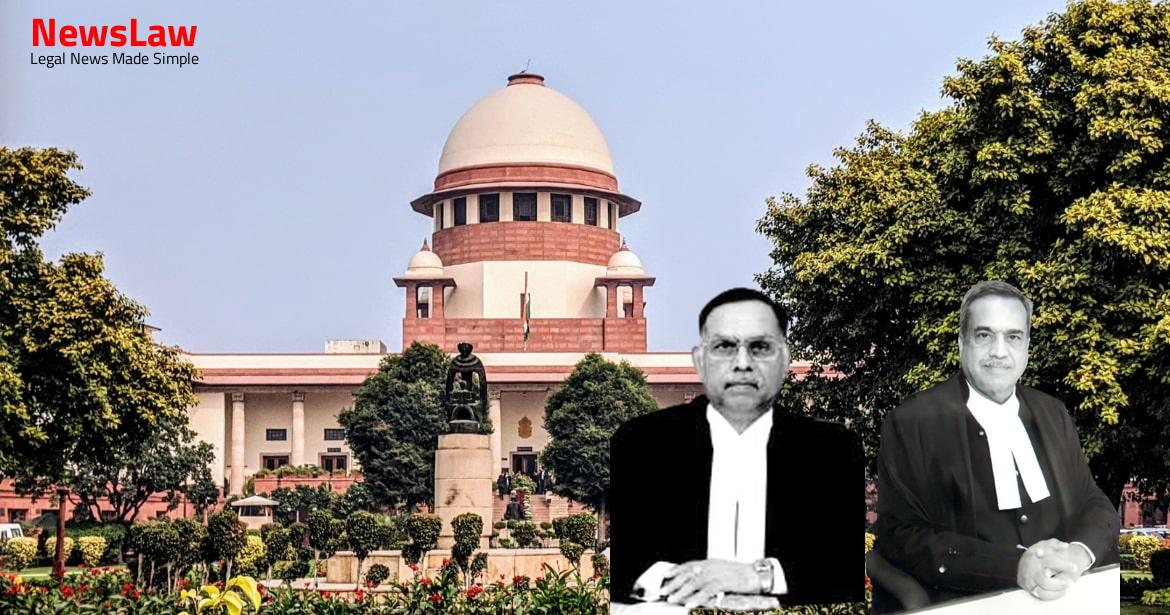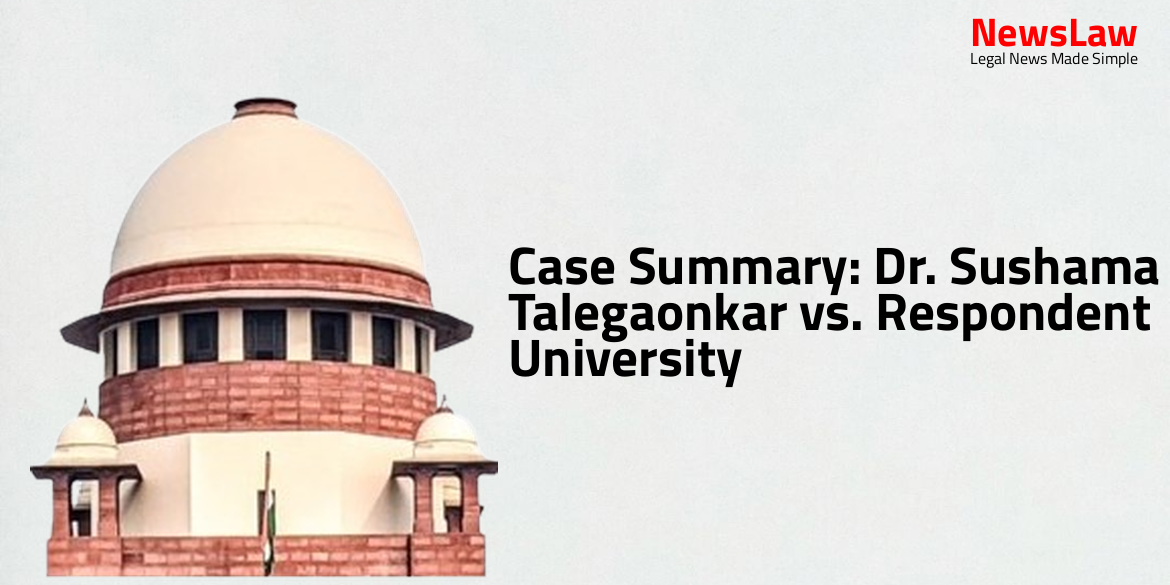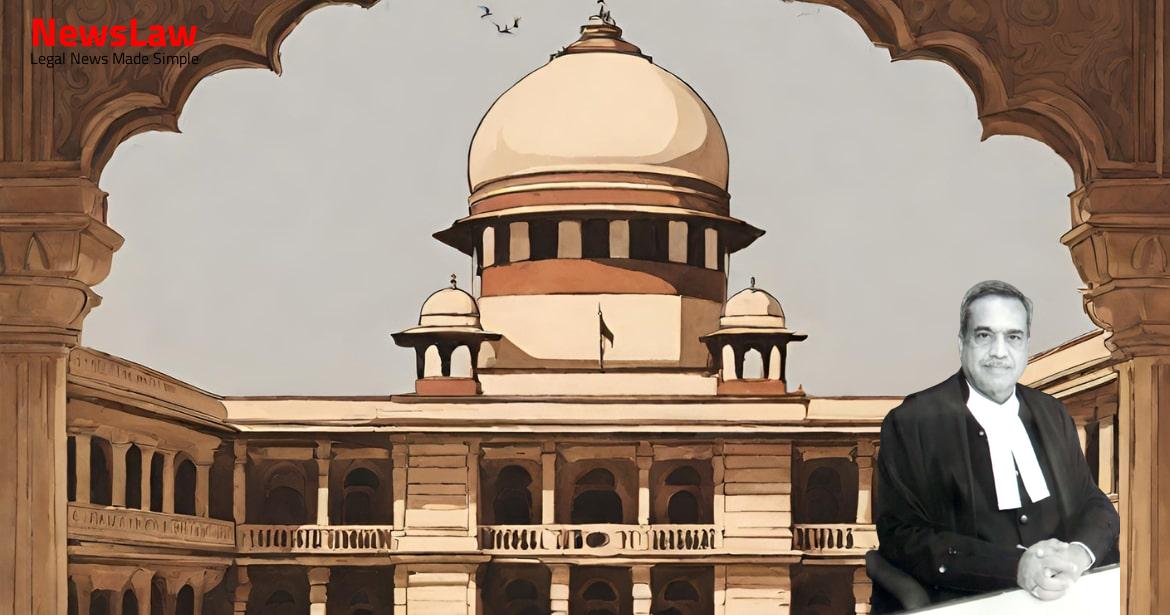Explore the intricacies of legal analysis in a recent case involving ex post facto Environmental Clearance for a Bio-Medical Waste Treatment Facility. The court’s examination of environmental norms, principles of sustainability, and the ‘polluter pays’ principle highlights the importance of complying with regulatory requirements. Discover more about the implications of ex post facto approvals and the balancing of environmental considerations with industrial operations in this insightful judgment.
Facts
- Respondent No.3 applied for consent to operate the Common Bio-Medical Waste Facility in March 2015.
- MoEF&CC amended the notification in April 2015 based on a judgment from the National Green Tribunal.
- Guidelines for Common Bio-Medical Waste Treatment Facilities were issued by the Central Pollution Control Board in February 2014.
- A draft notification was issued by the MoEF&CC in March 2020 for dealing with violations of environmental norms.
- SEIAA issued directions to issue consent for operation of the Common Bio-Medical Waste Treatment Facility in December 2015.
- Respondent No.1 instructed the KSPCB to receive applications for consent only if EC was attached.
- Re-submission of application for consent by Respondent No.3 in January 2016.
- Revised guidelines for Bio-Medical Waste Treatment and Disposal Facility issued by CPCB in December 2016.
- Interim order dated 15 July 2021 by Division Bench of Madras High Court admitted Writ Petition and stayed memorandum
- M/s Shree Consultant filed Appeal Nos. 46-47 of 2013 before National Green Tribunal against judgment of Karnataka State Environment Appellate Authority
- Judgment and order dated 28 November 2013 by National Green Tribunal stated Bio-Medical Waste Treatment Plants need Environmental Clearance from MoEF&CC
- Parties running Common Bio-Medical Waste Treatment Facilities directed to apply for EC
- Appeal dismissed by National Green Tribunal on 20 April 2013
- Final judgment and order dated 10 May 2017 dismissed appeal, stating Respondent No.3 cannot be closed for lack of EC
- National Green Tribunal, Southern Zone, Chennai judgment on 14 July 2014 dismissed Appeal Nos. 46-47 of 2013, affirming Respondent No.1’s consent for the Bio-Medical Waste Treatment Facility
Also Read: Land Dispute Legal Analysis
Arguments
- KSPCB argues that the 2015 amendment to the EIA Notification is prospective, citing the Narmada Bachao Andolan v. Union of India case.
- It is claimed that the appeal has suppressed facts.
Also Read: Legal Analysis of Appeal Provisions in Admiralty and Commercial Court Cases
Analysis
- Notification and orders can be amended or modified if power to do so exists
- Words and phrases in a judgment should not be read out of context like a statute
- EP Act does not prohibit ex post facto EC
- MoEF&CC issued SoP for handling violation cases under 2006 EIA Notification
- Ex post facto clearances and approvals should not be declined rigidly
- NGT found Bio-Medical Waste Treatment facility could not be closed for lack of prior Environmental Clearance when operated with requisite consent
- Projects in compliance with environmental norms may be granted ex post facto EC in accordance with the law
- SoP refers to judicial pronouncements and emphasizes on the polluter pays principle and liability for remedial costs
- Grant of ex post facto EC should not be routine and must consider proportionality and merit
- Ex post facto Environmental Clearance should not be granted routinely, but in exceptional circumstances considering all relevant environmental factors.
- Industries which pollute should not be allowed to operate unchecked to protect the environment and ensure sustainable development.
- The need to comply with requirements to obtain Environmental Clearance is non-negotiable.
- Grant of ex post facto approval should be weighed against adverse consequences and given in strict conformity with applicable laws.
- Deviant industries may be penalized under the ‘polluter pays’ principle and the cost of environmental restoration may be recovered from them.
- Judgment in Alembic Pharmaceuticals Ltd. is not applicable to the office memorandum dated 7 July 2021.
- Closure of facility only for want of prior Environmental Clearance would be against public interest.
- Issues raised are covered by judgments in Electrosteel Steels Limited and Pahwa Plastics Pvt. Ltd.
- Operation of Bio-Medical Waste Treatment Facility is in the interest of prevention of environmental pollution.
- No grounds to interfere with the judgment and order of the NGT as argued by KSPCB and Respondent No.3.
Also Read: Interpretation of Borrower and Pledgor in Loan Agreements
Decision
- The appeal does not raise any substantial question of law
- The appeal is barred by delay
- The appeal is dismissed
Case Title: D. SWAMY Vs. KARNATAKA STATE POLLUTION CONTROL BOARD (2022 INSC 998)
Case Number: C.A. No.-003132 / 2018



